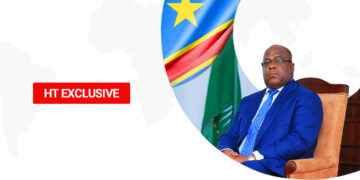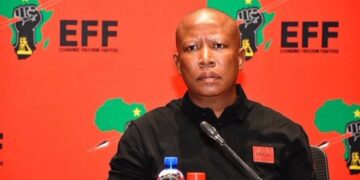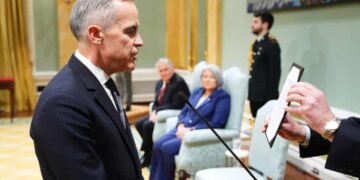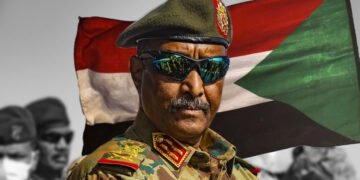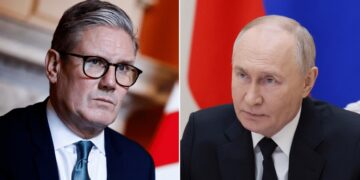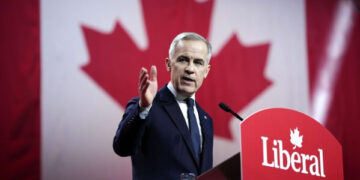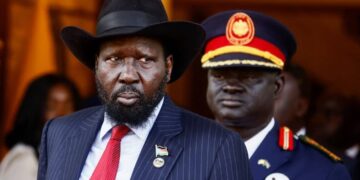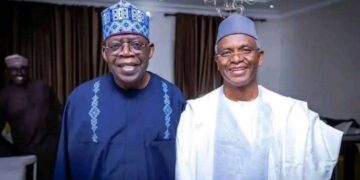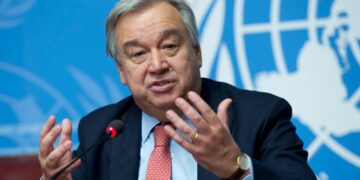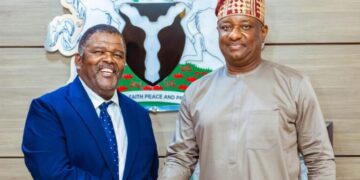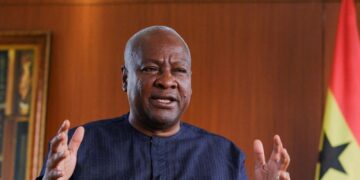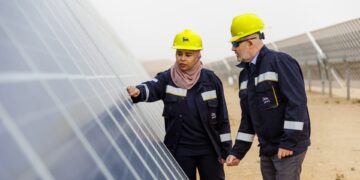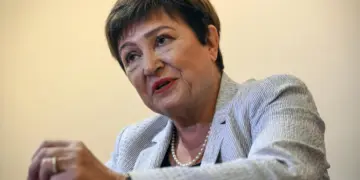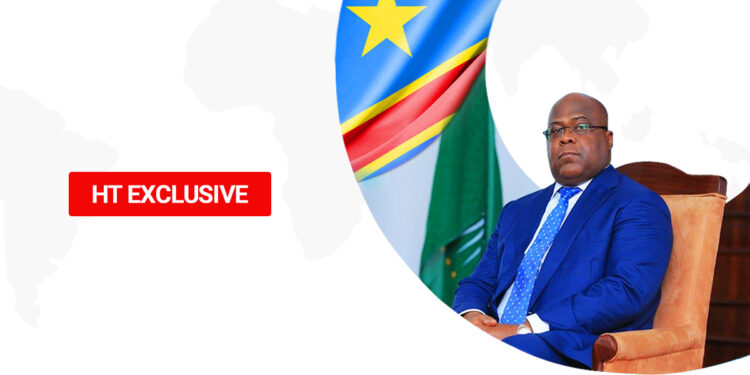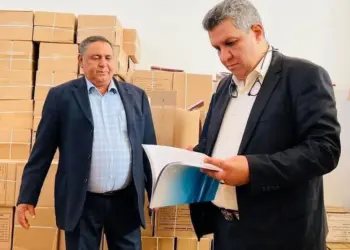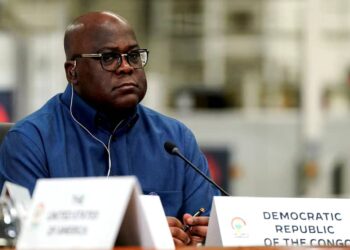By Elie Mutangana
Experts in East African security situation anticipate that hundreds of thousands of fleeing and displaced Congolese from the eastern war prone area could possibly not take part in the coming voting in DR Congo, scheduled for December 20 later this year.
Fighting between Congolese forces, their allies and the M23 rebels in North Kivu province, that erupted again recently – has extinguished hopes that peace and stability would have be restored on the day of the election – to pave way for Congolese citizens living in the affected areas to get involved in the polls.
In February, Congolese President Felix Tshisekedi pledged that the peace would have been reinstated in the East, but acknowledged that conflicts can threaten the effectiveness of the electoral process if not deterred.
“The persistent hostilities in our East I’lltend to jeopardise the electoral process, which is already underway, given to displacement of people from the war prone, insecurity and inability to allocate electoral kits in the affected areas,” Thisekedhi said earlier in February this year.
“All areas still under the control of the M23 will be liberated to allow people vote”, a Congolese General in North Kivu Province, additionally pledged.
Sources report that fighting aimed to quel the existence of the M23 rebels in the East has been going on, while international and regional bodies consistently proposed other reliable options such as: cease fire and peace talks that can pacify the incident.
The M23 rebels has accused the Congolese forces and their allies including Wazalendo and FDLR, Nyatura and others of commencing fights in the villages of Kirolirwe, Kibarizo and Busumba in North Kivu Province. Reporters in the region revealed that some villages Including Kirolirwe and Busumba of Masisi territory have been, as result, recaptured by the Congolese army from the rebels.
On the side of the rebels, Lawrence Kanyuka, the M23 spokeperson condemned Congo’s decision to start a fight with them, while there are several calls for peaceful settlement of the conflicts and ignoring the mandate of East African Regional Forces sent to facilitate the peace process and restoration. Since the conflict broke out, thousands of people were displaced and several other victims lost their lives.
Though the Congolese government announced readiness of the upcoming elections in December, regardless of the situation, the displaced population is absolutely not on the list of voters expected take part in the election. The Independent National Electoral Commission in DR Congo announced that around 43.9 million voters have been registered for voting, and approximately four million are estimated to miss voting owing to security constraints within the country, particularly in the East.
According to the UN Refugee Agency, in February alone, nearly three million people fled across Rutshuru and Masisi territories in North Kivu Province. The agency greatly alarms the violent clashes between the FARDC and the armed groups to drive hundreds of thousands to flee their home in Eastern DR Congo.
More than 5, 500 people have also crossed the border into neighbouring Rwanda since January, and a further 5,000 into Uganda as insecurity and violence continue to ravage the border region.
“With our partners, we have relocated more than 14,000 vulnerable, displaced people to Buchagara displacement site, five kilometers from Goma, North Kivu’s Provincial capital where they received emergency shelters. Further relief is planned this month in form of kits. However, the growing needs are outstripping the available resources at a dramatic rate,” said the UN Refugee Agency in an article.
Tshisekedi seeks re-election, vowing to crush rebels
President Tshisekedi had previously confirmed his candidacy for a second term, but political experts view that he has resumed fights against the M23 rebels to convince voters that he’s still willing to fight back the rebels and requests more time to solve the security concerns in eastern DRC.
The Congolese government is still identifying the M23 rebels as terrorists, a name tag which the group condemns and accuses its neighbour Rwanda of backing the rebels. Recently, Congolese refugees camping in Rwanda called for their repatriation by urging DR Congo to install peace in their place of origin. Kinyarwanda-speaking Tutsi community in Congo reported alleged incidents of violence by other ethnic groups, and security officers in Congo, which the rebel M23 say it fights against.
“Tshisekedi wants to prove that he’s actively ready to keep fighting back the rebels when he’s reelected. Congolese don’t want to sit for talks with the rebels and hear their request. Several initiatives including the EAC forces were deployed to smoothen the peace process, but the government has dissed the contribution. He tends to support the idea of going for war against the rebel because of the pressure from the majority of extremists whose ethnical divisions resisted them to implement peace process,” said, Jean Baptist Gasomina, a Lawyer and Political Analyst.
He adds that President Tshisekedi fears the competition from other candidates whom the Congolese can alternatively vote to seek for changes, particularly in restoring security in DR Congo, but by excluding the M23 rebels and its affiliated groups of Congolese.
With the help of his loyal allies in his coalition known in French as L’union Sacre de la Nation or Sacred Union of the Nation, Tshisekedi has recently set up a campaign team to be dispatched in all 26 provinces to out speak his pledges in the next term’s seat.
Within the party, prominent members and leaders have vowed to support Tshisekedi’s candidacy. Those include known figures in his government such as; Sama Lukonde – Prime Minister, Jean Pierre Bemba – Prime Minister in charge of Defense, Modeste Bahati – Senate Speaker and many other elements.
“The second term will be devoted to major public reforms which is why we’re determined to give him a comfortable majority,” said a supporter of President Tshisekedi .
Human Rights Watch has accused Tshisekedi and his party of oppression and intimidating the opposition ahead of the polls. The organ has also witnessed different scenes of violence, arbitrary arrests and threats against political opponents.
With fews days to the election, Tshisekedi has to compete with several candidates including two major big shots; Martin Fayulu who recently denounced fraud allegations, and Moise Katumbi, a businessman and former Governor of Katanga Province, who leads a heavy opposition party known as the ‘Assembly for the Republic’.
“Our country is condemned neither to war, not to insecurity or nor to bad governance, nor to repeated violation of the rule of war and freedom” said Katumbi in a statement while announcing his candidacy.
“DRC is only commending Burundian contingent among other troops sent by EAC Regional Forces, although the whole mission ordered to leave shortly”.
Recently, the M23 rebels condemned Burundian forces operating under the EAC Regional Forces to engage with Congolese Forces, FARDC and their allies in raiding the rebel in their positions.
In a recent statement released by the rebels, they accused the intervention of Burundian forces in fighting along with their opponents, FARDC in the ongoing attacks that has quelled the rebels from some villages in Masisi territory. The rebels also accuse the Burundians of not carrying out their mission in compliance with the mandate of EAC Regional Forces.
“The M23 calls on the EAC to clarify this situation because, in these circumstances, a member state becomes, in fact a belligerent in the fight and participate fully in the hostilities on the front lines alongside the FDLR and FARDC reservists,” the rebels stated.
During a state visit in Botswana in May this year, President Tshisekedi was heard claiming that except for the Burundian troops, other contingents sent by EAC are acting passively.
However, Burundi’s side dismissed those accusations from the M23 rebels and said “the Burundin contingent is carrying out it’s mission in accordance with the legal framework governing the regional forces.”
A war expert based in Kigali had advised Burundian troops should to abide by rules governing the whole regional mission and obey the buffer zone law.
“The reason why the Burundian contingent should uphold the buffer zone order and avoid fighting for any side is to avoid that they can become a legitimate target for one side in the hostilities,” said the military veteran who spoke under condition of anonymity.
As learnt, Burundi has also other troops sent to DR Congo, in South Kivu Province on the bilateral agreement with the two governments.
Besides, Recently, EAC Secretary General, Peter Mathuki met Uganda’s President, Yoweli Museveni and other leaders to discuss the ongoing hostilities in Eastern DR Congo. The leaders raised concerns over the deterioration of conflict and fragile ceasefire between two warring sides involving in the fighting.
Nonetheless, DR Congo has seriously announced that the EAC regional forces, whose mandate was extended last month, should leave the country by the expiration month of the current mandate in December.
It expected that the SADC forces that President Tshisekedi has been banking on would be deployed to replace the EAC.
